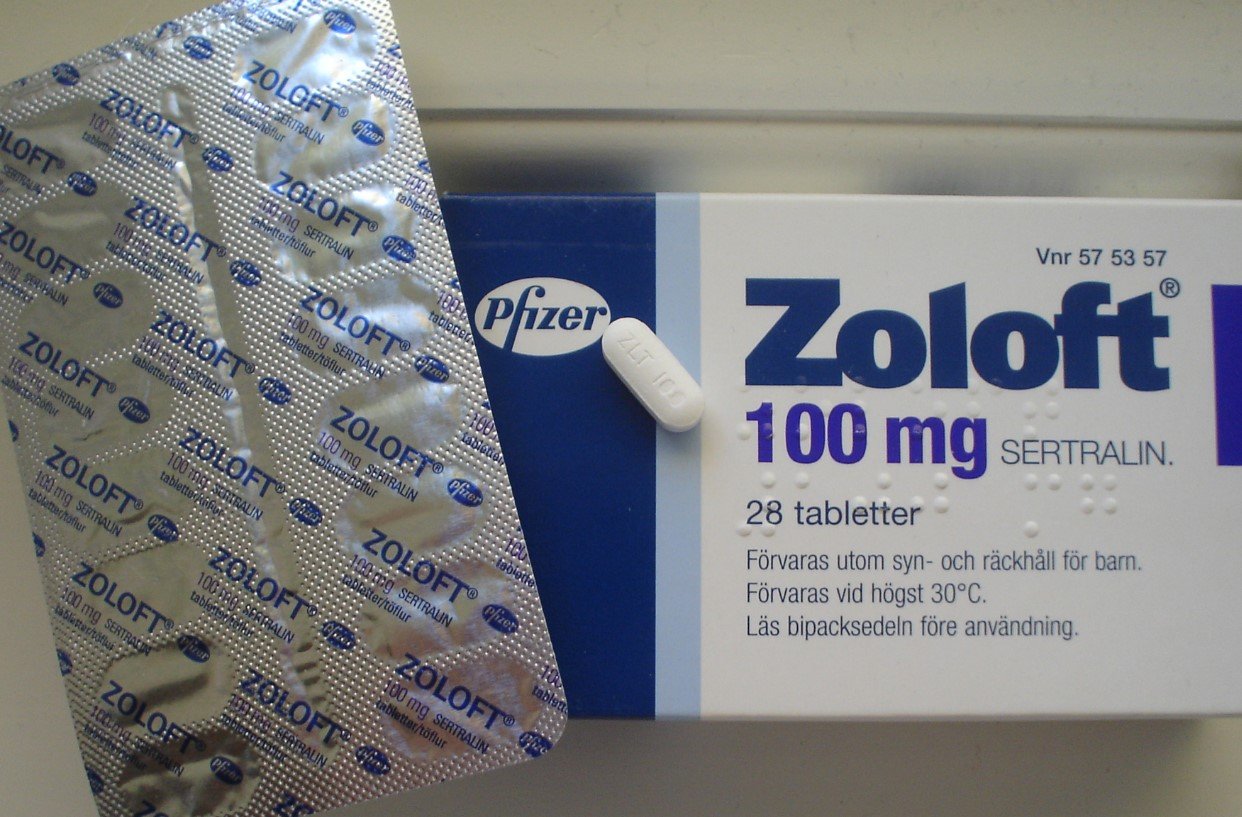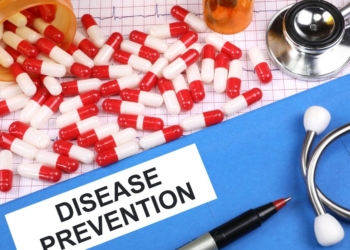Did you know that 100mg of Zoloft is considered the standard starting dose for adults with depression or anxiety? Surprisingly, this typical dosage can be effective for many individuals, but some might wonder if it’s high. Understanding what constitutes a high dose is crucial when discussing medication like Zoloft. Factors such as individual tolerance levels, specific medical conditions, and doctor-prescribed medicine play a significant role in determining the right dosage.

Understanding Zoloft and Its Uses
Understanding Zoloft Dosage
Zoloft, an antidepressant serotonergic drug, is often prescribed by doctors in various doses. The doctor prescribes the antidepressant Zoloft based on the individual’s condition and response to the medication. Doctors typically start with a lower starting dosage and may gradually increase it if needed.
When determining whether 100mg of Zoloft is considered a high dose, it’s essential to consider factors such as the severity of the mental health condition being treated and how well the patient responds to the serotonergic drug at that dosage.
Factors Influencing Zoloft Dosage
Several factors influence the appropriate dosage of Zoloft, including the specific mental health disorder being addressed, an individual’s age, weight, overall health status, and any other medications they may be taking concurrently. For some individuals with severe depression or anxiety disorders, a higher dose like 100mg might be necessary for effective treatment.
It’s crucial for patients to follow their healthcare provider’s guidance regarding Zoloft dosage adjustments. Abruptly changing doses or stopping medications without medical supervision can lead to adverse effects or worsening symptoms.
What Determines a High Dose of Zoloft
Factors Influencing High Dose Consideration
When determining if 100mg Zoloft, a serotonergic drug, qualifies as a high dose, various factors like serotonin levels come into play. These include individual aspects like age, weight, and the specific condition being treated. Healthcare professionals assess the severity of symptoms and how patients respond to lower doses to ascertain toxicity and serotonin levels.
Factors such as drug interactions, serotonin levels, and existing medical conditions can significantly impact whether 100mg Zoloft is considered a high dose for an individual. For instance, someone with certain pre-existing health issues may be more sensitive to medications or have different tolerances compared to others.
Individualized Dosage Determination
The concept of what defines a high dose of Zoloft is not one-size-fits-all; it varies from person to person based on serotonin levels and toxicity considerations. The starting point for prescribing drugs involves evaluating the patient’s unique characteristics like age and weight before moving on to determine subsequent doses.
Healthcare providers monitor patients closely when administering Zoloft, adjusting dosages accordingly based on factors like plasma concentrations in the blood or potential pharmacodynamic synergism effects that could influence how well the medication works.
The Standard Dosage Range for Zoloft
Starting Dosage
When starting Zoloft, the initial dosage is commonly 25mg per day and can be adjusted gradually. For some individuals, a low dose like this might be sufficient to address their condition effectively. As the body adjusts to the medication, doctors may increase the dosage incrementally.
Zoloft dosages are tailored to each person’s needs based on factors such as age, weight, and medical history. It is crucial to use caution and not to self-adjust doses without consulting a healthcare provider due to potential side effects or reduced effectiveness. For instance, adults typically start with 50mg daily but might eventually require up to 200mg per day for optimal results.
Maximum Dosage Differences
The maximum dose of Zoloft can vary among different age groups due to variations in metabolism and tolerability. While adults may safely take up to 200mg daily under medical supervision, children and adolescents usually have lower maximum limits because their bodies process medications differently.
For older adults or individuals with specific health conditions like liver problems or reduced kidney function, doctors may prescribe lower doses initially. This cautious approach helps prevent adverse reactions and ensures that patients receive effective treatment without unnecessary risks associated with higher doses.
Factors Influencing Zoloft Dosage
Individual Factors
When determining the appropriate dosage of Zoloft, healthcare professionals consider various individual factors. Age, weight, and overall health play a crucial role in deciding whether drugs like 100mg of Zoloft is considered a high dose. For instance, individuals with certain medical conditions may require a lower or higher dose to achieve the desired therapeutic effect.
Moreover, the presence of other medical conditions can impact how the body processes and responds to Zoloft. Conditions such as liver or kidney disease may necessitate adjustments in dose or use alternate drugs to prevent toxicity.
Severity of Symptoms and Treatment Goals
Another essential factor influencing Zoloft dosage is the severity of symptoms and treatment goals. Individuals experiencing severe symptoms of depression or anxiety may require higher doses to effectively manage their condition. On the contrary, those with milder symptoms might benefit from lower doses.
Treatment goals play a significant role in determining the appropriate Zoloft dose. Healthcare providers consider whether the goal is symptom relief, long-term management, or prevention of relapse when prescribing drugs like Zoloft.
Previous Response to Medication
The response to previous medication treatments and serotonin levels guide healthcare professionals in adjusting Zoloft dosages. If an individual has previously responded well to lower doses of antidepressants like Zoloft without experiencing adverse effects, it may influence subsequent prescription decisions.
Furthermore, monitoring how patients respond to different dosages helps healthcare providers tailor treatment plans for optimal outcomes while minimizing potential side effects associated with higher doses.
Comparing 100mg Zoloft to Typical Dosages
Understanding Dosage Levels
A dose of 100mg falls within the standard range. It is often considered a moderate dose for many individuals. The effectiveness of this dosage can vary depending on each person’s unique condition and how they respond to the medication.
Typical doses serve as benchmarks for comparison, giving an idea of what drugs are commonly prescribed. For instance, some typical starting dosages might be lower, such as 25mg or 50mg daily, gradually increasing based on individual needs and response. However, 100mg Zoloft is still well within the normal dose range and can be effective for managing certain conditions.
Consulting Healthcare Professionals
Before making any decisions about medication doses, especially when considering if 100mg Zoloft is high or low for you personally, consulting with a healthcare professional is crucial. They consider various factors like your medical history, current health status, and other medications you may be taking that could interact with Zoloft.
Personalized Treatment Approach
Healthcare providers tailor treatment plans to suit each individual’s specific needs by modifying therapy and drug doses. While comparing dosages can provide insight into what others typically take, it’s essential not to make assumptions about what might work best in your case without expert guidance.
Consultation: Schedule an appointment with your healthcare provider to discuss any concerns or questions regarding your current Zoloft dosage.
Monitoring Progress: Keep track of how you feel both physically and emotionally while taking 100mg Zoloft, noting any changes, side effects, or dose adjustments experienced along the way.
Adjustments: If necessary adjustments are needed in your medication regimen after starting at 100 mg per day, consult with your doctor first before making any changes independently.
Side Effects of High Dosage Zoloft
Potential Side Effects
Taking 100mg Zoloft or higher doses can lead to various side effects like nausea, diarrhea, insomnia, and sexual dysfunction due to serotonin levels. These side effects are common when the dosage is increased beyond typical levels. For example, individuals on high-dose Zoloft may experience persistent nausea or difficulty falling asleep due to the medication’s impact on serotonin levels in the brain.
Higher doses of Zoloft can sometimes trigger adverse reactions in some individuals, leading to discomfort and challenges in managing day-to-day activities. It is crucial for patients to be aware of these potential side effects and increased risk before starting a high dose regimen. Monitoring any unusual symptoms closely is essential as they could indicate toxicity or negative responses to the medication.
Managing Side Effects
Healthcare professionals play a vital role in monitoring patients who are prescribed high doses of Zoloft, ensuring that any emerging side effects, serotonin levels, and pharmacodynamic synergism are promptly addressed. By keeping a close watch on how the body responds to the increased dosage, healthcare providers can intervene early if adverse reactions occur. Adjusting the dose or using an alternate drug might be necessary if severe toxicity persists.
Patients should communicate openly with their healthcare provider about any discomfort, increased risk, or toxicity experienced while taking higher doses of Zoloft. This proactive approach enables timely intervention and adjustments to prevent potentially harmful consequences associated with prolonged exposure to elevated dosages.
When Might 100mg Zoloft Be Prescribed
When Prescribed
100mg Zoloft may be prescribed when lower doses are ineffective in alleviating symptoms or improving mental health conditions by modifying therapy. The decision to prescribe this dose is based on individual factors. Healthcare professionals evaluate serotonin levels, dose, and use caution before prescribing 100mg Zoloft.
Healthcare providers consider various factors such as the severity of symptoms, previous treatment responses, and potential side effects, dose when determining if 100mg Zoloft is suitable for a patient. For instance, if someone with depression has not shown significant improvement with lower doses like 50mg or 75mg, their doctor may increase the dosage to 100mg Zoloft to achieve better symptom management.
Evaluation Process
Before prescribing 100mg Zoloft, doctors carefully assess patients’ conditions and serotonin levels to ensure that this dose is appropriate for them. They take into account the individual’s medical history, current medications being used (concomitant use), and any underlying health concerns that could impact how they respond to the medication. This evaluation process helps healthcare professionals make informed decisions about eligible prescriptions.
For example, a patient who has been on Zoloft at lower doses but still experiences persistent anxiety might be considered for an increased dosage after discussing their symptoms with their doctor. In such cases, treatment initiation at 100mg Zoloft could be deemed necessary based on the assessment of their mental health condition.
Monitoring and Adjusting Zoloft Dosage
Importance of Regular Monitoring
Regular monitoring of symptoms and side effects is crucial when taking Zoloft, even at a 100mg dosage. This monitoring helps healthcare professionals assess the effectiveness of the medication in managing the individual’s condition. By monitoring these aspects, adjustments can be made to modify therapy and ensure optimal treatment outcomes.
Healthcare providers may modify the dose based on how well a person responds to treatment or if they experience toxicity. For instance, if someone on 100mg Zoloft experiences significant improvement in their symptoms with minimal side effects, their healthcare provider might maintain the current dosage. On the other hand, if there are limited improvements or bothersome side effects emerge, adjusting the dose could be beneficial.
The Role of Open Communication
Open communication between individuals taking Zoloft and their healthcare providers is vital for effective monitoring and adjustment of dosage. Patients should inform their doctors about any changes in symptoms, new side effects, or toxicity promptly to facilitate appropriate modifications to the treatment plan. Discussing concerns related to medication adherence or lifestyle factors that may impact treatment efficacy, risk, toxicity, or use alternate drug can help tailor therapy for better results.
Alternatives to High-Dose Zoloft
Alternative Medications and Treatment Approaches
When a 100mg Zoloft dose is deemed high or ineffective, considering alternate drugs becomes crucial. These alternatives could involve using alternate drugs or modifying therapy to better suit the individual’s needs. Switching to an alternate drug with a different mechanism of action might be beneficial.
Exploring adjunct treatments like psychotherapy can complement medication effects. Lifestyle changes such as regular exercise, healthy eating habits, and stress management techniques can also play a significant role in improving mental health alongside medication adjustments. It’s essential to consult with a healthcare provider before making any changes to ensure safety and effectiveness.
Discussing Options with Healthcare Professionals
Engaging in an open discussion about potential alternatives with healthcare professionals is vital when considering modifying therapy from high-dose Zoloft. This dialogue allows for informed decision-making regarding the best course of action moving forward based on individual circumstances.
Healthcare providers can offer valuable insights into other serotonergic drugs that may modify therapy as suitable replacements or complementary therapies. They can also provide guidance on dose reduction strategies if transitioning between medications is necessary. By involving professionals in these discussions, individuals can benefit from expert advice tailored to their specific needs to avoid risk and modify therapy.
Seek professional guidance when contemplating alternative medications.
Be open about concerns regarding current medication efficacy and tolerability.
Collaborate with healthcare providers to develop a comprehensive treatment plan.
Summary
You’ve delved into Zoloft dosages, learning what’s considered high and how it compares to standard amounts. Use caution, 100mg might be high for some but just right for others. Keep an eye out for those side effects, use caution, and chat with your doc if you’re concerned. Adjusting doses isn’t a walk in the park, but it’s crucial for your well-being.
Now that you’re clued up on Zoloft dosages and serotonin levels, take charge of your health. If you’re unsure about your meds or at risk, don’t play the guessing game – reach out to your healthcare provider. Your mental health is top priority, so make sure you’re on the same page as your doc. Stay informed and stay healthy!
Frequently Asked Questions
Is 100mg of Zoloft considered a high dose?
Yes, 100mg of Zoloft can be considered a moderate to high dose depending on individual factors. It’s crucial to consult your healthcare provider for personalized dose recommendations.
When might a doctor prescribe 100mg of Zoloft?
A doctor may prescribe 100mg of Zoloft for individuals with severe depression or anxiety who require higher doses for symptom management. Always follow your doctor’s guidance on dosage adjustments.
What are the side effects of high-dose Zoloft?
Side effects of high-dose Zoloft may include nausea, dizziness, insomnia, and sexual dysfunction. Monitoring by a healthcare professional is essential to manage toxicity and address any adverse reactions promptly.
Are there alternatives to taking high doses of Zoloft?
Yes, there are alternative medications and therapies available for managing mental health conditions besides high-dose Zoloft. Discuss with your healthcare provider about potential alternatives, use alternate drug, that may better suit your needs and preferences.
How can one monitor and adjust their Zoloft dosage effectively?
Regular communication with your healthcare provider is key in monitoring and adjusting your Zoloft dose. Keeping track of how you feel physically and emotionally while on the medication can also help guide discussions about potential dosage adjustments.



















